
SCATTERED along a curve of the Thames, the Canary Wharf skyscrapers pierce the sky, marvels of glass and metal vying for the palm of tallest, slenderest, most daring. But the real wonder hides in their shadow: more than 100 art installations pepper the estate's stylish squares, fringe its spraying fountains and stretch among the trees of a Jubilee Park remarkably busy with people. This is the UK's largest free collection of public art and a sizeable part of an informal south-east London 'museum' so thick with works that it takes plenty of stamina, a day to spare and more than a little cheating with public transport to view (almost) all of it.
The pieces at Canary Wharf are a cavalcade of contrasts: the small (Victor Seaward's 3D printed fruit, which double up as RSPB-standard bird nests, on South Colonnade) and the monumental (Igor Mitoraj's massive heads at Bank Street and Columbus Courtyard); the abstract (Ottotto's 100 red-light circles, which hug the Cubitt Bridge) and the figurative (Sean Henry's Standing Figures at Park Drive, easily mistaken for real people); the amusing (Stephanie Quayle's terracotta Snub Nose Monkey II at One Canada Square) and the bemusing (Fernando Brízio's Pé de Porco, a huge trotter made of cork sitting on Crossrail Place's roof garden).
On a sunny summer morning, the light plays on Canary Wharf's latest display, a group of 11 pieces that build on six permanent installations to form the 'Summer Lights' exhibition, open until August 20. The show is a triumph of creativity, colour and movement particularly Yoni Alter's 98 giant, translucent dots, which hang from wires to form a giant bird, and another avian installation, Atelier Sisu's flight of multi-coloured birds, which sway in the breeze above Jubilee Park's gurgling water channel.
Denne historien er fra August 03, 2022-utgaven av Country Life UK.
Start din 7-dagers gratis prøveperiode på Magzter GOLD for å få tilgang til tusenvis av utvalgte premiumhistorier og 9000+ magasiner og aviser.
Allerede abonnent ? Logg på
Denne historien er fra August 03, 2022-utgaven av Country Life UK.
Start din 7-dagers gratis prøveperiode på Magzter GOLD for å få tilgang til tusenvis av utvalgte premiumhistorier og 9000+ magasiner og aviser.
Allerede abonnent? Logg på

Kitchen garden cook - Apples
'Sweet and crisp, apples are the epitome of autumn flavour'

The original Mr Rochester
Three classic houses in North Yorkshire have come to the market; the owner of one inspired Charlotte Brontë to write Jane Eyre
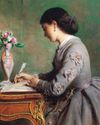
Get it write
Desks, once akin to instruments of torture for scribes, have become cherished repositories of memories and secrets. Matthew Dennison charts their evolution
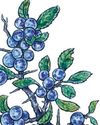
'Sloes hath ben my food'
A possible paint for the Picts and a definite culprit in tea fraud, the cheek-suckingly sour sloe's spiritual home is indisputably in gin, says John Wright
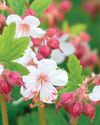
Souvenirs of greatness
FOR many years, some large boxes have been stored and forgotten in the dark recesses of the garage. Unpacked last week, the contents turned out to be pots: some, perhaps, nearing a century old—dense terracotta, of interesting provenance.
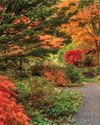
Plants for plants' sake
The garden at Hergest Croft, Herefordshire The home of Edward Banks The Banks family is synonymous with an extraordinary collection of trees and shrubs, many of which are presents from distinguished friends, garnered over two centuries. Be prepared to be amazed, says Charles Quest-Ritson

Capturing the castle
Seventy years after Christian Dior’s last fashion show in Scotland, the brand returned under creative director Maria Grazia Chiuri for a celebratory event honouring local craftsmanship, the beauty of the land and the Auld Alliance, explains Kim Parker
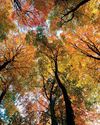
Nature's own cathedral
Our tallest native tree 'most lovely of all', the stately beech creates a shaded environment that few plants can survive. John Lewis-Stempel ventures into the enchanted woods
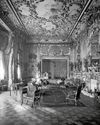
All that money could buy
A new book explores the lost riches of London's grand houses. Its author, Steven Brindle, looks at the residences of plutocrats built by the nouveaux riches of the late-Victorian and Edwardian ages

In with the old
Diamonds are meant to sparkle in candlelight, but many now gather dust in jewellery boxes. To wear them today, we may need to reimagine them, as Hetty Lintell discovers with her grandmother's jewellery